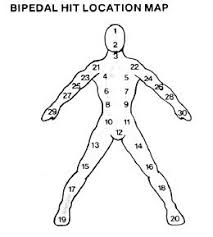Odyssey is known to be a grindy game though, where you have to do a lot of sidequests to catch up with bloaty enemies. Requirement of grind is also bloat in a way.
I'm not saying you have to like the game, clearly you don't. But its bloatiness has more to do with whether you like the game or not. Fallout 4 is a much better example, with zounds of elite boss enemies with bajillion hit points. It's commonplace there. That's bloated.
But Odyssey is actually more like classic RPGs than people would like to admit.
For example, playing through Ultima V is grindy and bloated if you don't like it, even though there are just 9 character levels. You have to grind a stupid amount of Gazers, Mimics, Ettins, Orcs, Skeletons, Gremlins and Sharks, just to be able to go into a dungeon, which leads to a stupid amount of grind to reach the Underworld, which leads to so much grind the grind before seems trivial by comparison. Just to catch up with those bloaty Shadowlords. Still I thought it was a lot of fun and the game world rewarded all that grinding and exploration. Same with Odyssey.
The more things change, the more they stay the same. Odyssey is a much more classic RPG than people would like to admit, probably because it has that stupid name "Assassin's Creed".
Odyssey has a really big world open world and there are 99 character levels. But outside some
very optional quests, there are no "elite bosses" with bajillion hit points. If you are level 20 and fighting someone who is level 20, you will have a good chance - even if your build sucks. You'll one-shot enemies if your build is optimized, otherwise you'll fight for a few seconds and then win.
If your build is really good and you are good at the game mechanics, fighting someone 5-10 levels above you is absolutely possible.
As it should be, in D&D if you are fighting someone 5-10 levels above you, it is very hard to win. Even fighting NPCs 2-3 levels above you is challenging in D&D.






















